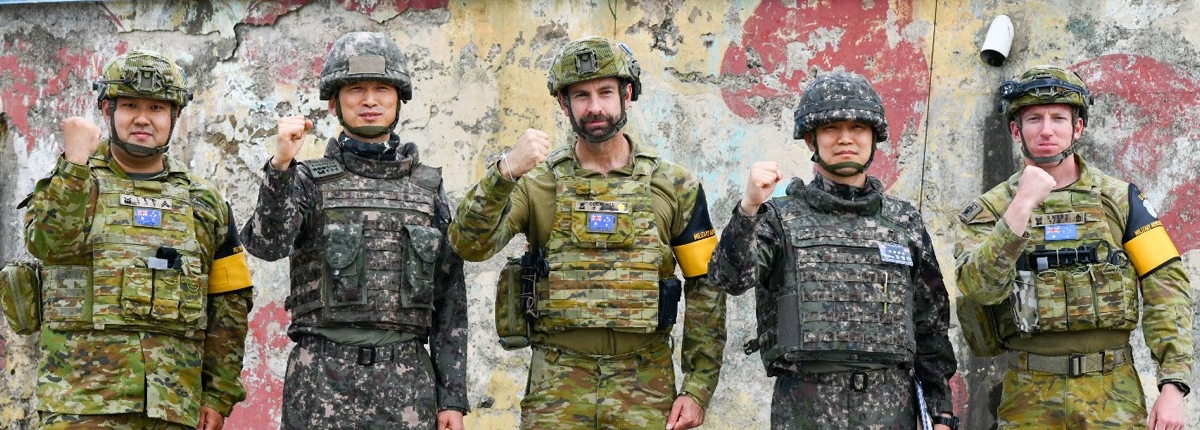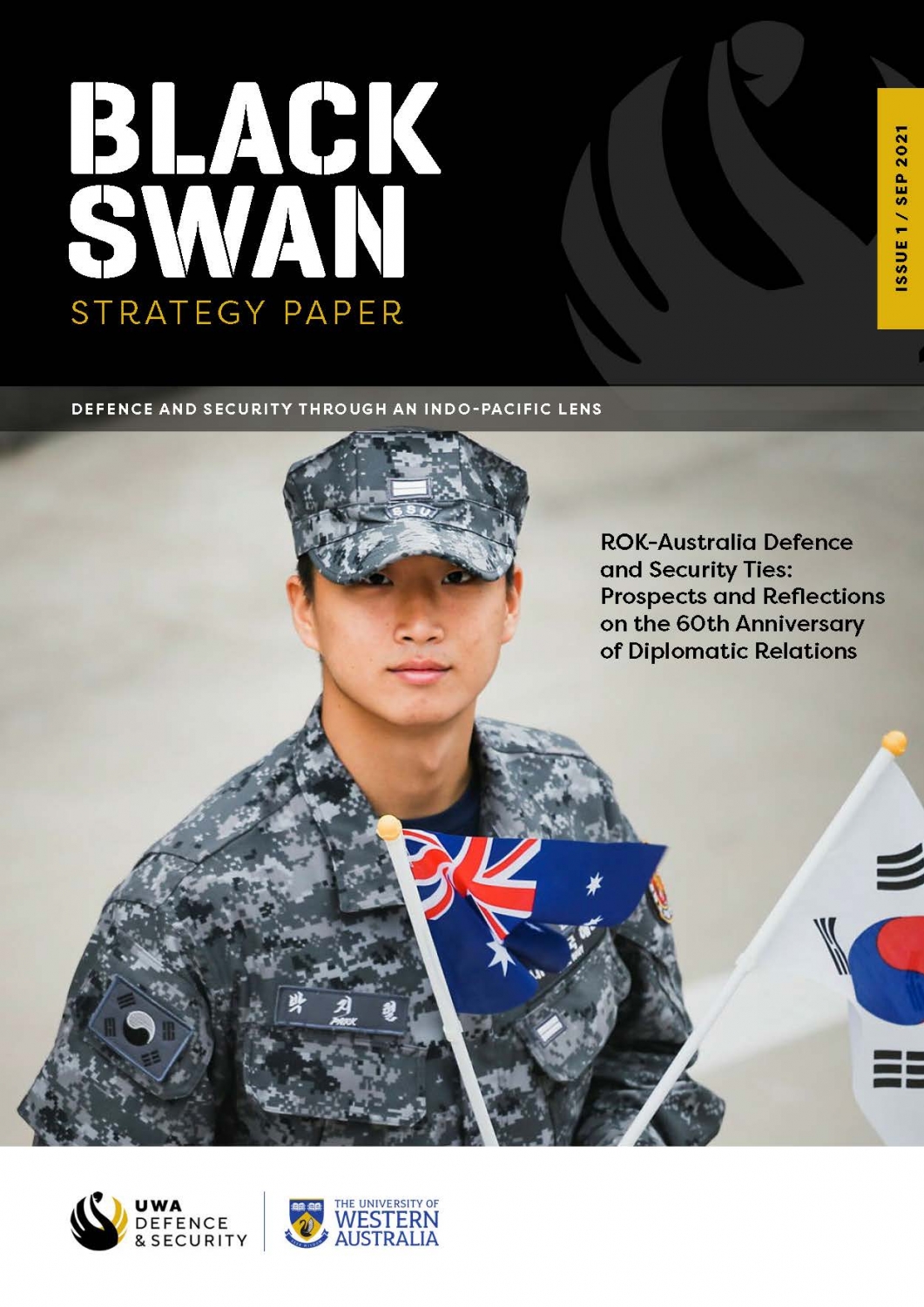ROK-Australia Defence and Security Ties: Prospects and Reflections on the 60th Anniversary of Diplomatic Relations
On 10 June, the UWA Korea Research Centre and the UWA Defence and Security Institute reflected on the past 60 years of diplomatic engagements between the Republic of Korea (ROK) and Australia. Amidst the changing security landscape in the Indo-Pacific, the relationship has perhaps never been closer or more significant.
The dialogue aimed to provoke new insights around the missed opportunities and future possibilities of this important relationship. In a public discussion, established and early career scholars, business leaders with interest in the defence and security industries, as well as government representatives and diplomats with a deep understanding of ROK-Australia relations, focussed on raising public awareness about the nature of cooperation and engagement between the two as middle powers with growing complementarities.
Participants also engaged in a second session convened under Chatham House Rule and discussed narratives beyond the material focus of the relationship in terms of what a meaningful cultural and educational exchange might look like, and how this alliance partnership and strategic security cooperation could yet develop.
A significant result of the dialogue was the development of clear priority research agendas and a joint call to advance the present state of the ROK-Australia bilateral relationship through increased bilateral defence, security and military ties. The case for doing so is arguably now more compelling than ever.
Whilst ROK-Australia trade and diplomatic relations are strong, the bilateral security relationship is widely regarded as underdeveloped; barred from substantial progress by divergent regional strategic outlooks, defence procurement arrangements, regional partnership preferences, and political priorities. Each country holds a different vision for the Indo-Pacific and seeks to play different roles within it.
Australia seeks a continuation of the US-led order in the region and has been forward leaning in its Indo-Pacific security policy by increasingly turning to minilateralism to strengthen its strategic position in championing a liberal, rules-based regional system.
Recent Australian foreign policy documents identified South Korea alongside Japan, India and Indonesia as countries of ‘first order importance’, but have oscillated between prioritising and omitting South Korea entirely as a primary security partner — an unfortunate oversight that has not gone unnoticed by South Korean officials and analysts and which works against Australia’s co-optive defence strategy.
South Korea has pursued foreign and defence policy settings which arguably hedge for a regional order where Chinese influence is strengthened, and US engagement is diminished. There are sound strategic reasons for this approach. South Korea faces a real and present danger from its northern neighbour, and China will be critical to any long-term settlement on the Korean Peninsula. Ongoing adversarial relations with Japan have also reinforced concerns in South Korea about the possibility of it being ‘demoted’ to a lower node in relation to Japan in the northern axis of the US-led alliance network.
Whist understandable, such different regional outlooks and approaches are insufficient to address the broader cumulative geopolitical pressures from successive crises that are pushing the region toward major conflict.
Recent history may have stalled bilateral cooperation in the immediate term, but opportunities to advance the ROK-Australia security relationship remain achievable.
Australia and Korea are both driven by a common aim to achieve greater self-reliance, and already have taken first steps to engage in greater defence industry cooperation. The decision by Australia last year to purchase 30 Korean self-propelled K9 howitzers and their support vehicles marks the first major Australian defence acquisition from an Asian country. This opens the way to greater on-ground defence collaboration and training.
However, as existing arrangements to building long-term defence industry capability are restrictive in scope and notoriously complex, Canberra and Seoul should actively support closer coordination efforts at executive and ministerial levels, and work to enable agreements that streamline defence tender and procurement processes.
Australia should seek active support and intercession from the United States to encourage a more forthcoming Korean approach to collaborating in multilateral fora, such as the East Asia Summit, to encourage the use of regional risk reduction measures which have already been established but which are not being utilised.
As an aside to Quad-Plus groupings, the Australian government should privately advocate for the establishment of a Korea-India-Australia (KIA) minilateral security framework in the region. Doing so would increase understanding of respective security agencies, and map existing activities to reveal overlap and gaps. This trilateral partnership could then later function as a reliable pathway toward practical maritime security cooperation.
Crucially, the report highlights a sense of urgency given the changing security landscape of the region. Whether or not Australia and Korea will manage to build closer and lasting security ties will depend on how Korea’s vision for the region and its role in it evolves, and how effectively Australia is able to build support for its ambitious outcomes with South Korean officials and society at all levels.
Should Canberra and Seoul succeed in building closer security ties, South Korea will move closer to realising its full security contribution potential and Australia will establish firmer networks of support for the rules-based international order with other likeminded partners in the region.
For both countries, this would be the ideal, particularly as the broader strategic interests of South Korea and Australia, always compatible, continue to converge in a highly uncertain Indo-Pacific.
Chapter 1: Introduction by Professor Peter J. Dean and Associate Professor Jo Elfving-Hwang
Chapter 2: Australia and Korea: Defence and security by William Paterson PSM
Chapter 3: The Korean Peninsula as a security flashpoint by Professor Brendan Taylor
Chapter 4: South Korea-Australia security cooperation: The fine line between enhancement and friction in East Asia by Associate Professor Jae Jeok Park
Chapter 5: Reinvigorating Australia-ROK security cooperation by Hayley Channer
Chapter 6: Integrating defence industry into the Australia-Korea security relationship by Peter K. Lee



